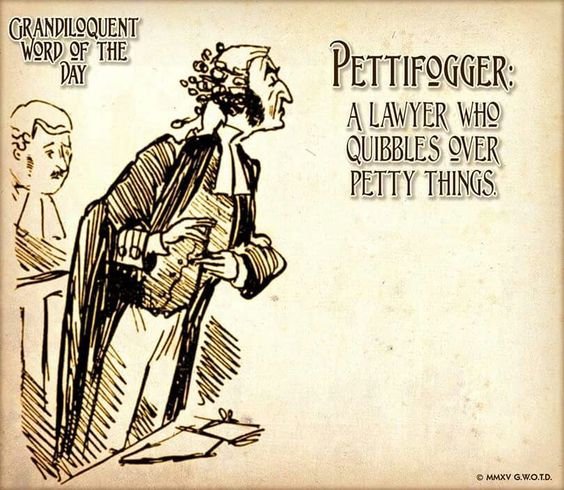
Valerie Tarico has posted what I consider to be a first rate essay as a psychologist, not just about Kavanaugh and Ford, but about us all.
What Kavanaugh Could Have Said That Would Have Been Honest
Musings on biblical studies, politics, religion, ethics, human nature, tidbits from science


Valerie Tarico has posted what I consider to be a first rate essay as a psychologist, not just about Kavanaugh and Ford, but about us all.

 This morning I was slightly surprised by a criticism of my posts, in particular with reference to PZ Myers on “the Tim O’Neill Treatment”: Jesus Mythicism and Historical Methods, that I make sophistic distinctions and nuances, or that I quibble over precise meanings for the sake attacking an otherwise very evidently sound and sensible argument. I know Tim O’Neill has indicated that he certainly thinks that is what I do with his posts, but I was a little surprised that someone else should make the same charge.
This morning I was slightly surprised by a criticism of my posts, in particular with reference to PZ Myers on “the Tim O’Neill Treatment”: Jesus Mythicism and Historical Methods, that I make sophistic distinctions and nuances, or that I quibble over precise meanings for the sake attacking an otherwise very evidently sound and sensible argument. I know Tim O’Neill has indicated that he certainly thinks that is what I do with his posts, but I was a little surprised that someone else should make the same charge.
Godfrey is okay sometimes, but he seems to pettifog too much and comes across as uncharitable. Reading his articles is sometimes a chore. I didn’t read the whole thing, I stopped after I became annoyed. Example:
. . . .
Second example soon after:
//No, it is simply not the case that “the sources all say that there was a historical preacher as the point of origin”. I don’t know that any critical scholar (I am not speaking of apologists) who would say that the four canonical gospels depict a historical preacher. My understanding from reading a good many of them is that they concur that the Jesus of the gospels is a mythical or theological construct. He is certainly not a historical figure. Indeed, they argue that they must look behind the gospels and into inferences about the sources of the gospels to try to find a historical figure who acted more in accord with our understanding of how the world works…[more words]//
Ok, clearly Tim means that they are assuming Jesus to be/depicting Jesus as if he were a real human being who lived in the past, i.e., a historical figure, despite whatever theological interpretive overlay, legendary embellishments, etc., they spun on their ideas about Jesus.
I responded that I did not see my point as pettifogging but as a concern to ensure the discussion is governed by clear thinking. But I did wonder. Obviously some readers do see me as a nitpicker. And it’s not only Tim.
In the example I have cited I can well understand the critic’s point of view. Yes, certainly, the evangelists did place Jesus in a historical setting and gave him a historical biography. In hindsight I see that I would have been smarter to have made it known that I clearly understood that point before hitting the point of disagreement.
My disagreement was with the way Tim’s point was expressed. The problem as I see it is that to say “the sources all say that there was a historical preacher as the point of origin (of Christianity)” is a subtle question-begging interpretation of the sources and not a strictly correct or objective way to portray the gospels. That’s why I saw the point as a problem of unclear thinking. We need to sift out question-begging and casual conventional assumptions (even if they are common among biblical scholars themselves) and set them aside whenever we are addressing the actual data before us.
I suspect that my critic is so very entrenched in the conventional assumptions about the gospels that it is very difficult for him to see that they are indeed a question-begging interpretation that should be examined and tested, not casually repeated as if fact.
The data itself is a set of narratives in a historical setting and with historical biographical trappings about a character who is very obviously mythical. I mean Jesus is mythical as he is portrayed in the gospels: he talks to spirit beings and they to him, he does all sorts of miracles, returns from the dead. I’m not saying that that means there was no historical figure of Jesus behind the stories. As I pointed out in my original post the only way to find a historical figure from the gospels is to do exactly what scholarship does: make inferences about the origins and sources of the narratives and hypothesize about such a figure through those inferences. That approach, of course, has led to myriads of different historical Jesuses.
Probably at least some of the gospel authors did believe the Jesus they were depicting was historical but that is hardly a point in favour of historicity and is no grounds for saying that they explain Christianity began with a historical figure — unless we are also prepared to say that the cults of Dionysus and Heracles are portrayed as having historical founders (Dionysus and Heracles) and to say that as if we have grounds for a prima facie case that they were truly historical.
Maybe it’s a finer distinction than we might all grasp quickly. I should try to remember to clarify points of agreement and acknowledging where I understand the grounds for the view I am challenging. But at the same time I wish my posts were shorter, not longer. C’est la vie.
Okay, I skipped the first example my critic gave. Lest I be charged with self-serving misrepresentation let me address that one now, too. Continue reading “Neil the Pettifogger?”